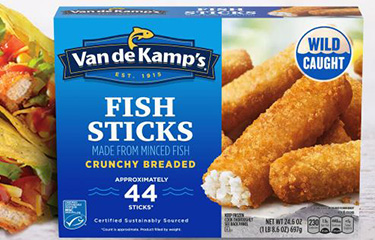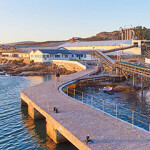Bumble Bee, Conagra face USD 5 million class-action sustainability claims lawsuits

Class-action lawsuits have been filed against Bumble Bee Foods and Conagra Brands over sustainability claims they made for their seafood products. The separate complaints, filed in federal district courts in the U.S. states of Illinois and California, each ask for at least USD 5 million (EUR 4.7 million) in damages.
The complaints also heavily criticize the Marine Stewardship Council, alleging it “blatantly violates its own standards and puts the very ecosystem MSC feigns to protect in serious danger.”
Plaintiffs Abdallah Nasser and John Bohen contend the “Sustainability Promise” found on each of Bumble Bee’s product labels – including canned pouched Wild Caught Pink Salmon and Sockeye Salmon and pouched Wild Caught Applewood Smoke Tuna – “deceives and misleads reasonable consumers into believing the products are sourced from sustainable fishing practices.”
“Bumble Bee turns a blind eye to the unsustainable fishing practices used in sourcing its products and boldly uses the Sustainability Promise with the [MSC] Blue Tick as proof of sustainable fishing methods,” the plaintiffs said.
Bumble Bee knew or should have known that “MSC hands out this certification to those who use industrial fishing methods that injure marine life as well as ocean habitats with destructive fishing. MSC also allows its members to obtain their certification with a paid membership, creating a potential conflict of interest,” the plaintiffs said.
Despite the MSC certification, Bumble Bee sources its products using fishing practices that indiscriminately harm ocean ecosystems, the complaint alleges.
The lawsuit alleges San Diego, California, U.S.A.-based Bumble Bee, which is owned by Kaohsiung, Taiwan-based FCF Co., engages in “the suffocation and crushing of dolphins caught in fishing nets that are then hauled onto fishing boats while severely injured or dead; the torturously slow death of endangered sea turtles after getting caught on large hooks meant for tuna; the trapping of whales by fishing gear, causing deep wounds and intense suffering; and the extortion of migrants working on fishing boats, who are forced to labor relentlessly for long hours with little food and minimal sleep, under the threat of being beaten or thrown overboard.”
In the complaint against Chicago, Illinois, U.S.A.-based Conagra, the maker of Van de Kamp’s and Mrs. Paul’s seafood products, plaintiffs also allege that MSC-certified fisheries “do not provide these promised protections and, instead, engage in the following conduct, which indisputably defies its promise of sustainability: the suffocation and crushing of sea lions, sharks, and whales caught in fishing nets that are then hauled onto fishing boats while severely injured or dead; the excessive capturing or harming of non-targeted prohibited species, such as snow crabs, and contributing to the failure of the populations.”
Some of Conagra’s products are harvested in the Bering Sea by Russian fisheries that use pelagic midwater trawls, the plaintiffs contend.
“Russian pollock fisheries do not have an effective measure in place to protect endangered species, such as Steller sea lions and albatross,” the plaintiffs said. Pollock trawl fisheries in the Bering Sea also frequently catch snow crab as bycatch, which they ultimately discard, according to the plaintiffs.
“Due to the use of pelagic trawls, these discarded crabs are estimated to have an 80 percent mortality rate,” Nassar and Bohen said. “No reasonable consumer would believe the products to be ‘sustainable’ if they knew of these fishing practices utilized in sourcing the products.”
Numerous lawsuits have been filed in recent years against seafood purveyors making sustainability claims, with defendants including ...
Photo courtesy of Conagra




Share